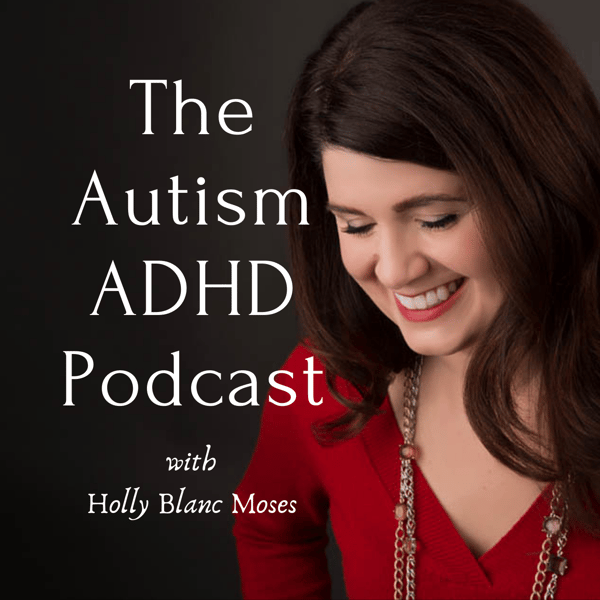Alexithymia, Emotional Regulation & Neurodivergent Children
THE AUTISM ADHD PODCAST
Holly Blanc Moses
4.8 • 650 Ratings
🗓️ 25 January 2023
⏱️ 35 minutes
🧾️ Download transcript
Summary
Join Emily, Neurodivergent Therapist, and I as we chat about Alexithymia, identifying emotions, sensory input, communication, and emotional regulation. Don't miss it!
❤️ Holly- The Mom/Psychologist Who Gets It
⭐️ Get to Know my Child Guide
Parents, get your free "Get to Know my Child Guide" here
Educators, get your free "Get to Know my Child Guide" here
Therapists get your free "Get to Know my Child Guide" here
⭐️Behavior Detective Guide
Parents - Get your free Behavior Detective Guide
Therapists - Get your free Behavior Detective Guide
Educators - Get your free Behavior Detective Guide
⭐️Join the Facebook Groups
Parents, Come on over and join the Autism ADHD Facebook Group for Parents
Professionals, Join the Facebook Group for Therapists and Educators
Transcript
Click on a timestamp to play from that location
| 0:00.0 | Welcome to the Autism, ADHD podcast. I am so happy that you join me today. I want to take a moment and ask for your help. Please take just a second and give the podcast a five-star review. |
| 0:19.5 | This will help me continue the podcast and keep bringing you |
| 0:23.3 | helpful information. Thanks so much again for taking the time to give that five-star review. Now, |
| 0:29.7 | let's get started. Welcome, Emily, to the Autism, ADHD podcast. |
| 0:38.7 | Oh, thank you so much for having me. |
| 0:40.8 | I am so excited that you're here, and I'm going to introduce you really quick. |
| 0:45.0 | Emily Kircher-Morris, LPC, is the host of the amazing neurodiversity podcast. |
| 0:52.0 | She has written two books related to the development of twice exceptional |
| 0:55.5 | students, teaching twice exceptional learners in today's classroom, focuses on supporting two e-learners |
| 1:02.7 | in the educational setting, and raising twice exceptional children, a handbook for parents of |
| 1:08.1 | neurodivergent gifted kids, guides parents to the world of twice |
| 1:12.3 | exceptionality. She practices as a mental health counselor outside of St. Louis, Missouri. So today |
| 1:19.1 | we're going to talk about Alexa thymia sensory differences and how those two things impact |
| 1:26.1 | emotional regulation and how we can help parents and |
| 1:30.4 | therapists support children with these differences. So you already get started? Oh, I'm ready. |
| 1:37.2 | Let's do this. First, for those who don't know what Alexa thymia is, let's just talk about that |
| 1:43.1 | real quick. Yeah. So Alexa thymia is. Let's just talk about that real quick. Yeah. So |
| 1:44.8 | Alexa thymia is a term that refers to the difficulty that somebody might have with |
| 1:52.7 | identifying their emotions. So it's often associated with autism, but it's not exclusive to autism. People who, you know, |
| 2:04.1 | other people can struggle with this. But there's definitely a, there's a sensory component to this |
| 2:11.3 | in the fact that a lot of how we identify our emotions is based on our physiological sensations that we experience. |
| 2:19.3 | So that is, if somebody has a hyposensitivity to that sensory input, they might have a harder time really |
... |
Please login to see the full transcript.
Disclaimer: The podcast and artwork embedded on this page are from Holly Blanc Moses, and are the property of its owner and not affiliated with or endorsed by Tapesearch.
Generated transcripts are the property of Holly Blanc Moses and are distributed freely under the Fair Use doctrine. Transcripts generated by Tapesearch are not guaranteed to be accurate.
Copyright © Tapesearch 2025.

